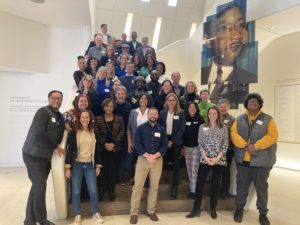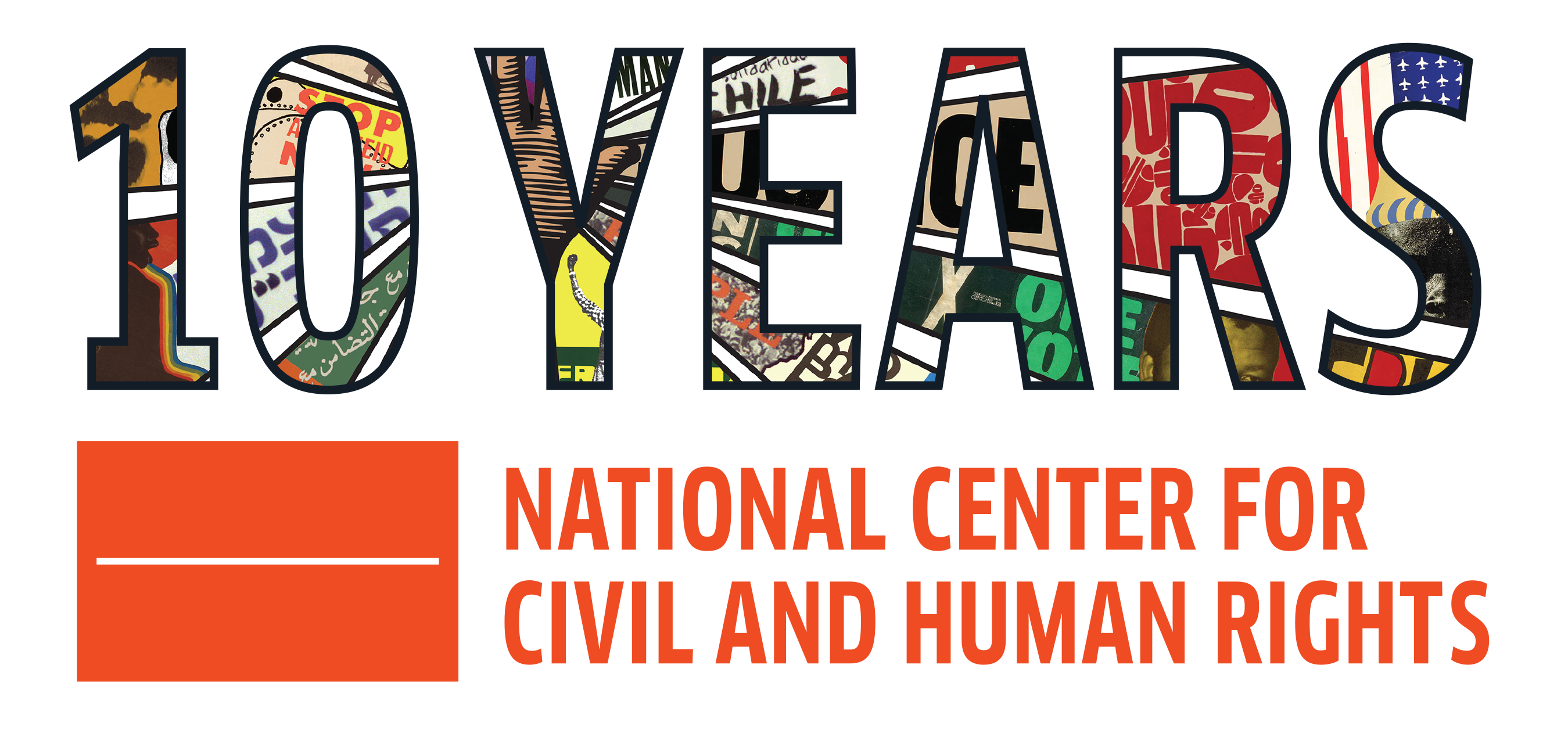Center and Partners Host 2nd Atlanta Civic Collaboratory

Members of the ATL Civic Collaboratory at the January Meeting
Along with our partners, Atlanta History Center and the Arthur M. Blank Family Foundation, the National Center for Civil and Human Rights gathered more than 40 leaders at the end of January for the second Atlanta Civic Collaboratory (ACC).
The Collaboratory was developed as a city-wide initiative to foster mutual aid among civic leaders. The project is based on the National Civic Collaboratory developed by Citizens University, a Seattle-based non-profit organization that equips Americans to be civic catalysts.
This collaboratory model has resonated with Atlanta civic leaders as our community faces extraordinary challenges, made more intense by disconnection and polarization, resource scarcity, competition, and silos. This model allows us to tackle these current challenges by building a sense of common purpose and collective power. The Collaboratory takes as a given that building trust and common purpose – and creating an ecosystem of mutual aid – can help us go further faster.
Collaboratory meetings take place every four months. They consist of a welcome dinner the night before and a lively meeting the next day. The dinner and day-long meetings are core to building trust. When a group breaks bread and cultivates bonds of affection, we strengthen the fabric of local partnerships, which allows us to respond more effectively to community needs.
The heart of the day-long gathering is a Rotating Credit Club. This is a time when members of the Collaboratory take turns presenting a project they are working on, and the rest of the Collaboratory offers specific commitments to move their project forward – in the form of funding, introductions, expertise, or elbow grease. Throughout the day, we also have group discussions, inviting everyone to give their perspectives on big questions facing Atlanta.
At the first Collaboratory in August, Saba Long of the Atlanta Civic Circle presented a project to the Rotating Credit Club. They seek to address the communication breakdown between metro Atlanta residents, stakeholders, and elected officials. They detailed their goals of creating a data-driven community engagement platform that will be powered by a 10,000-person regional panel to act as a sounding board in real time.
In January, Nia Mosby of Made By Us asked for support for Civic Season, a nationwide civics engagement campaign, now in its third year, that aims to reach 75 million people in the United States by 2026 – the number of Gen-Z that will be voting age. Maria Saporta and Ann Cramer of Atlanta Way 2.0 introduced their concept of creating a modern-day movement to bring together diverse stakeholders to improve community relationships, share resources and strengthen the civic fabric of our city through strategic meetings at neighborhood, city, and regional levels.
And for the third presentation, Liz Lapidus of Root Local told the group about their goal to grow a sustainability movement in metro Atlanta by expanding their established Pollinator Network to 250 individuals and doubling their public programming, which convenes environmental allies, breaks down silos, and shares local stories.
To date, dozens of commitments of help and support have been offered.
This mutual investment of capital — social, intellectual, and institutional — has made the Collaboratory a uniquely influential network of action. We look forward to our future gatherings and sharing with you the exciting work our colleagues are undertaking to strengthen Atlanta.

